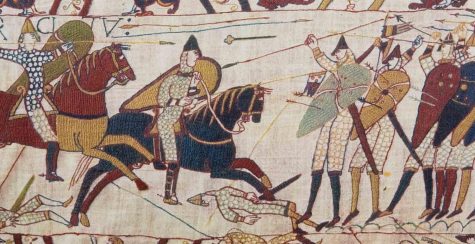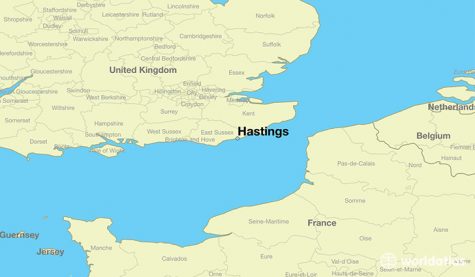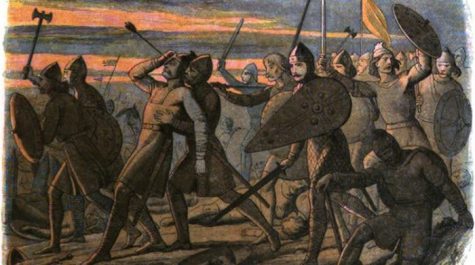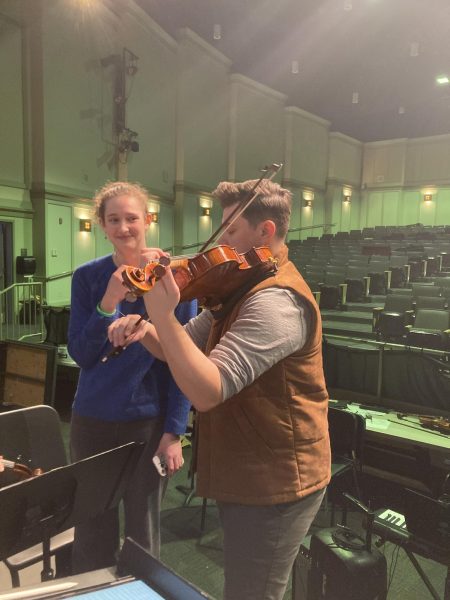How the Battle of Hastings changed the course of the English language
You have probably heard of World War 2 when Hitler and his third Reich attempted to push their fascist agenda across the globe, all while devastating millions of lives, leaving a scar in the world until the end of human existence. Or maybe even The Vietnam War, The Cold War, or The Korean War? All are wars that had battles with great significance and outcomes that affected our planet as a whole. However, most have probably not heard of The Battle of Hastings. The Normans invaded England in 1066, an event that transformed the English language forever, and has affected the way English is spoken today. Before we can tell you how it affected English we have to familiarize you with the history that led up to the battle of Hastings.
The battle of Hastings took place on the 14th of October 1066 A.D. and was between the Anglo-Saxon king Harold Godwinson and the Duke of Normandy William the bastard. But in order to know who these people are, you have to go farther back to 845 A.D. and the birth of Rollo the Great-Great-Great-Grandfather of William. Rollo was a Viking raider that was given land in northern France called Normandy. He was given the land by the French king to fend off any Viking raids that were common at that era. He also learned French and converted to Catholicism. But his people, the Normans, were different from the French in many ways. For one, the Normans were taller because of their Viking heritage, and they still had a knack for violence and strategy that came from their forefathers.
William was born about 1028 AD in Falaise, Normandy to the daughter of a leather maker. But William was no ordinary peasant because his father was the Duke of Normandy. William inherited lands and titles from his father at the age of 7 (or 8 depends on the source) and spent most of his childhood avoiding assassination. This made William into a stern and ruthless man. William’s distant cousin was King Edward the Confessor of England. Edward had promised a couple different people the crown of England because he did not have children. When Edward died the most powerful man in England was Edward’s brother in law, Harold Godwin. Harold claimed that before Edward died, he had left him the crown of England. Harold crowned himself as king the next day.
The news traveled fast and William had called all his men together to invade England. Harold had heard that William was raising an army and recruited his own to counter. But there was one problem: the wind. The wind was blowing towards the south, which made it so William was unable to invade. While this wind was delaying William, it carried another threat for King Harold of England. The King of Norway, Harald Hardrada had raised his Viking warriors and used the strong winds to sail to the north of England. (To lighten the confusion of this next part I will refer to Harald Hardrada and Harold Godwinson as their surnames.)
Godwin had just sent most of his men home when he had heard Hardrada had landed near Stamford. Godwin quickly raised as many men as he could find and started to head north. Godwin won the following battle because Hardrada’s forces had not expected a defending force to arrive as quickly as they did and were lacking most of their armor and weapons. Hardrada was slain in the battle and the rest of the Vikings retreated back to their homeland. Then the wind changed.
Nearly 2 and a half months after William first raised his army he landed in England. Godwin had just won the battle of Stamford bridge, before having to turn around and rush to the south to fight William. This is the battle that was to change the course of English history. William had some tactical advantages against Godwin’s forces. For one William had archers and cavalry while Godwin had mostly Heavy Infantry. Near the end of the battle, Godwin was killed. The most popular theory is that he was hit in the eye with an arrow. The rest of Godwin’s men saw this and fled leading to William winning the battle and later crowing himself as king of England. William had won the battle of Hastings but there were still many people who would resist him. It would take the rest of William’s life to secure his rule over England.
We ran some interviews with individuals who may have knowledge on the subject. We were able to interview Jeremy Powers, a student at Ipswich High School. Jeremy studied French, so we figured he would be a good individual to interview. Jeremy was not to cultivated with The Battle of Hastings. When asked “Do you know about the Battle of Hastings? If so, what do you know about it?” All he had to say was, “I don’t know anything about that and I have no idea what it was about.” We weren’t too surprised by this answer.
We also interviewed Mr. Cordiner, who is a teacher here at Ipswich High School; he had a lot to say on the subject. He was able to provide interesting viewpoints and facts about The Battle of Hastings and how it affected the English language. When asked what knowledge he has on the Battle Of Hastings, he said, “Yes, I know about the Battle of Hastings. 1066, Norman invasion. It dealt with a dispute over the right of succession.” He also knew the outcome, “It was won by the Normans army over the Anglo-Saxon army.” Mr. Cordiner also had a lot to say about how the battle would influence the English language. When asked if English is a Romance language or a Germanic one he responded with “out of the 5,000 most commonly used words, most are Germanic.” This would make sense because of the origin of English and the fact that the old Anglo-Saxon language was spoken by the peasants. But Mr. Cordiner also said that “As you move into academic English, the words become dominated by Romance language words.” This makes sense because the only people that could afford an education in the middle ages would have been the upper-class, which were the Normans. Although the Battle of Hastings holds so much importance, there is little known about it among people with a high school diploma.
It’s interesting how so many common English words all come from the events of the Battle Of Hastings; however, it is not seemly well known. The Battle Of Hastings affected the way English is spoken and would be much different had the battle not have occurred. A question one might have is, why is the Battle Of Hastings so uncommonly known? Is it due to the large gap of time since the battle occurred? Perhaps it’s that education doesn’t deem it important? To conclude, we can explain the origin of many English words are due to the Battle of Hastings. This was a significant event that would change the English language forever.











